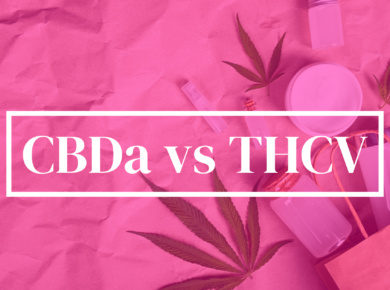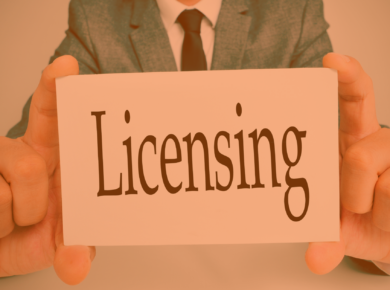In states where recreational and medical cannabis is legal there is an ongoing debate on whether or not smoking lounges are an acceptable business establishment to have. One faction is adamant on protecting clean air legislation from becoming lax, and argues that lounges will lead to greater reports of DUI’s. While the other side makes the point that cannabis users and patients require a comfortable space to consume their cannabis, free from persecution, and scrutiny of the public. Acting similarly to how bars service consumers looking for a safe space to drink alcohol. One user put it plainly,
“If you’re giving us all this weed, where am I supposed to smoke it?”
This affects many parties, on the consumer facing side we have residents and patients who cannot smoke in their private homes without risking eviction and then we have tourists eager to consume cannabis, possibly for the first time, in a new unfamiliar place. Providing both users a comfortable and safe space to consume medicine and experience cannabis away from the public and children (like these bed and breakfast that allows on site consumption), is both a service and need of the cannabis industry and community. On the production side, having licensed areas for legal, safe consumption allows producers and processors to showcase the actual quality of their products to both retailers and consumers. This is essential for new smaller businesses looking to break into the market, and for more established companies releasing new product lines and market testing. Such industry events help build strong community bonds amongst like minded people while also developing the culture as well as discussion on important topics like taxation, legalization and consumption limits.
In states like Oregon, Colorado, Washington and Massachusetts, there are no or few areas and instances where public smoking is allowed. Despite cannabis lounges and similar establishments having been placed on the docket for review by state legislatures, cannabis lounge applicants have been routinely denied. Many states, despite having an established medical and/or recreational market (such as the case in Colorado and Oregon) have also worked diligently over the past 2-5 years to enforce Clean Air and Non-Smoking legislation; leaving many proponents nervous to allow any form of smoking to re-enter their city buildings.
While in more progressive areas like the Bay Area of California, we see a different attitude altogether. The city was given the right to issue licenses for indoor cannabis consumption by the state to medical and recreational dispensaries, allowing for the establishment of cannabis lounges such as the Barbary Coast and Sparc. Both establishments are permitted to sell cannabis and provide on-site consumption, which to many supporters believe is a necessary component of lounges in order to have them be profitable.
In Colorado, a new coffee shop called, “The Coffee Joint” defies that premise by not selling cannabis at all, but rather charging an entry fee of $5.00 to make use of their coffee shop and vaporizer/dab/edible consumption lounge. All cannabis infused edibles and oil must be brought by the user and no plant matter can be burned – therefore bypassing the clean air regulations. Granted, location and connections are everything in any business, and the Coffee Joint is located across the street from a recreational store co-owned by the Coffee Joint owner’s Rita Tsalyuk and Kirill Merkulov’s husbands. This arrangement mutually benefits both companies, which one could argue is essentially owned by the same parties. However not all lounges are set up with the same amount of state licensing and support, in fact most are heavily criticised and pressured to shut down.
In Oregon, there is one such establishment left fighting for indoor consumption for cannabis users, while also pioneering a business model that other’s across the country have begun to follow. The Northwest Cannabis Club, located in Portland, Oregon and owned by Michael Keysor, has been active for over 3 years. The institution is a “private club” which implies that it’s internal business is outside the purview of the same laws governing non-private businesses such as clean air rights. However, despite his legal position, he still receives fines from the Oregon Health Authority over clean air violations, because the club allow for indoor combustion of cannabis. Having helped over 85,000 patients acquire and consume medicine in the past when he advocated and worked in the medical trade, Mike is accustomed to the often recessive ordinances of the state when concerning cannabis and some of its uglier sides.
“I’m here to provide safe access for patients, and patient providers… In the past I was attacked by gang members, harassed by the sheriff, the mayor, by everyone. I was called the head or a “syndicate” to the news and on television… I’ve been in the fight for a long time, I’m not easily intimidated”
Mike is certainly not the head of a syndicate, and is confident in his understanding of the law staying committed to proving that cannabis lounges are safe, necessary and beneficial to the city and community. However he does acknowledge that support from the state is needed.
Without having established guidelines set for businesses like his, it is impossible to move forward in developing the potential for cannabis lounges. As a result, resolving how lounges could best fit within the city’s expectations and culture is put at a standstill at the cost of the business owner. For instance, Mike is not allowed to sell any food and can only sell soda’s and candies because he does not have the proper licenses, without them it restricts the type of services and entertainments that can be provided to his members, and limits his audience. This makes the club in itself not the most lucrative business, and Mike admits to having moments where it was difficult to see how he could maintain the establishment.
However through sheer will and smart networking he’s managed to keep the doors open. A lifetime membership is only $20.00 and cost $5.00 for entry each time after, while there you can use the dab bar upstairs, check out the vendor bar (where vendors bring in their products to showcase), watch a show on the main stage, or head downstairs to play some pool or foosball. On top of providing a nice environment to smoke in, the NW Cannabis Club has been pivotal in promoting the cannabis community by hosting industry events, promoting and selling local glass and hosting private parties for cannabis companies. Such events include, Cupcake Wars, Barbeque Wars and Dab Wars, and also live glass-blowing events. In Mike’s view,
“State and local governments are trained to control things – so they need to license companies with a good moral standing/moral compass – allow these companies to explore the possibilities without hovering over them”
Moving forward: it’s becoming more and more clear that both medical and recreational users need a safe space to consume, particularly when there is an influx of cannabis available for people to purchase. In order to do so, proper guidelines on dosing, ventilation and proximity and consumption laws need to be determined. Infrastructure and education is needed as well, infrastructure from the state, and defensible arguments and procedures developed by business owners within the industry such as Mike’s.
In his words,
“[I’ve] Always tried to maintain a higher standard. We’re worthy of being considered and our model is very solid. If we had cooperation or even endorsement from the OLCC or the state, it would provide businesses confidence in coming out and supporting our company.
But until the state unlocks the chain and allows us to embrace the cannabis industry we can’t do much.”
This said, his model for working within the laws to provide indoor consumption is one being shared by similarly minded people across the country. In Colorado and Massachusetts small private membership clubs provide private space for members to enjoy cannabis indoors and must abide to similar regulations as Mike. For now, indoor consumption is a rarity at best, however, at some point states with legalized cannabis will have to answer the question:
Where can we smoke?




